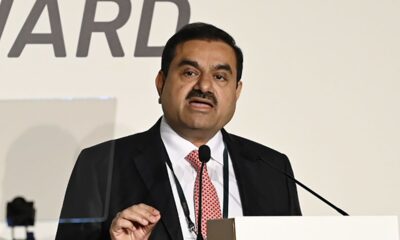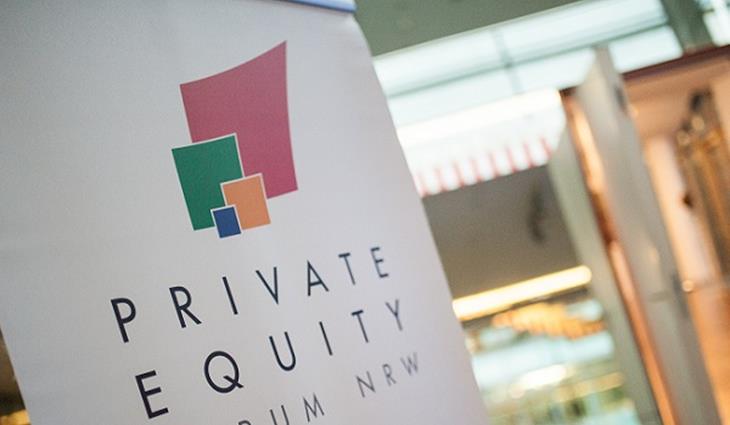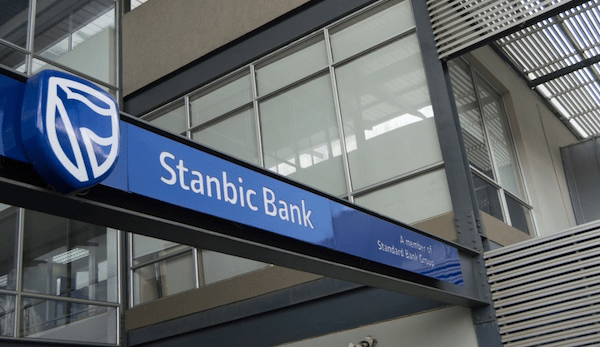Corporate Debt Capital Issuance Recovered Over 2022
Following the sharp decline in corporate debt capital issuance over 2021 of 38%, a record NGN1.5 Trillion (USD 3.2 Billion) of debt was issued in Nigeria in 2022, representing a 133% increase year-on-year. Using FMDQ data, there is currently approximately NGN 2.1 Trillion (USD 4.6 Billion) of publicly issued nonfederal local currency debt capital outstanding; the majority being corporate bonds at 71% of total (NGN 1.5 Trillion, USD 3.3 Billion).
As of year-end 2022, GCR rated approximately 80% of outstanding publicly issued non-federal local currency debt in Nigeria. Debt capital issuance, specifically CP issuance, in Nigeria decreased significantly over 2021. As shown in figure 2, below, Nigerian corporates issued just NGN379 Billion (USD 824 Million) of CP over 2021 compared to a record NGN762 Billion (USD 1.66 Billion) of CP in 2020. The reduction in CP issuance reflected rising yields, and thus rising cost of funding, over 2021 from a very low base.
Treasury bill yields continued to rise in 2022; increasing from 2.48% (91 day), 3.3% (182 Day) and 5.4% (364 Day) in January 2022 to a peak of 6.5% (91 day), 8.05% (182 Day) and 14.5% (364 Day) in October 2022. However, unlike 2021, the rising interest rate environment in 2022 did not curtail debt capital issuance.
2022 saw a deepening of challenges for Nigerian corporates on account of weak economic growth, a high headline inflation rate, spiralling fuel costs and supply-chain disruptions. As a result of this challenging environment, Nigerian corporates increasingly sought short-term funds through CP issuances in order to meet their working capital requirements i.e., to fund their day-to-day operations.
Working capital funding is common for businesses facing near-to-medium term uncertainty and/or businesses with inconsistent cash flow. 2022 saw 140 CP transactions totalling NGN762 Billion (USD 1.66 Billion) versus 61 transactions totalling NGN379 Billion (USD 824 Million) in 2021.
Bond issuance also grew significantly over 2022 at 189%. Nigerian corporates are choosing to issue local currency debt capital over borrowing in foreign currency. The challenging foreign exchange environment in Nigeria manifests itself in foreign currency shortages within the financial system and weakened relationships between Nigerian banks and foreign correspondent banks which ultimately led to unfavourable terms for Nigerian corporates looking to borrow in foreign currency.
We do not expect the unfavourable terms of foreign currency borrowing to change in the near-term. Growth in bond issuance was predominantly down to big ticket transactions to fund large capital expenditure projects, or acquisitions, such as:
• Dangote Industries Limited’s (AA+(NG), Stable) NGN300 Billion (USD 652 Million) bond to fund the construction of the Dangote refinery,
• Dangote Cement Plc’s (AA+(NG), Stable) NGN116 Billion (USD 252 Million) bond to fund expansion projects within the Nigerian market,
• MTN Nigeria Communications Plc’s (AAA(NG), Stable) NGN115 Billion (USD 250 Million) bond to fund the expansion of its 5G network,
• Geregu Power Plc’s (A(NG), Stable) NGN40.1 Billion (USD 87 Million) bond to fund the acquisition of a power plant,
• Presco Plc’s (A-(NG), Stable) NGN34.5 Billion (USD 75 Million) bond to fund the acquisition of a palm oil business and
• LFZC Funding SPV Plc’s (Lagos Free Zone Company) (AAA(NG), Stable) NGN25 Billion (USD 54 Million) Guaranteed Bond to fund the construction of various assets within the free zone.
The aforementioned Presco transaction is the first local bond from an entity operating in Nigeria’s palm oil industry.
Recent Crash in Money Market Yields Will Drive Corporate Debt Issuance in the Near-term
As shown in figure 5, over 2022, the CBN increased its Monetary Policy Rate (MPR) by 5 percentage points in order to curb rampant inflation. The CBN’s hawkish stance ultimately led to rising yields in money markets with 364 day rates rising from a 2022 low of 4.35% in February to a peak of 14.5% in October.
However, in recent months we have witnessed a dislocation in money market and MPR rates. Despite a 150 basis point increase in MPR this year, money market yields fell significantly; approaching levels close to fourth quarter 2020.
The dislocation is on account of the significant influx of liquidity into the financial system in recent months. Nigeria witnessed the highest Federation Account Allocation Committee (FAAC) pay-out of 2022 in December of NGN990 Billion (USD 2.2 Billion). Secondly, the CBN’s currency redesign meant that a significant quantum of cash has been redeposited at banks since its commencement, in fact, on 29 January 2023, the CBN reported that NGN1.9 Trillion (USD 4.1 Billion) of cash was redeposited in the prior two months.
We expect the aforementioned factors to moderate over the medium term and for money market yields, and thus corporate yields, to normalise as FAAC placements are expended and naira notes redistributed. Notwithstanding, according to FMDQ Securities Exchange, the average valuation yields for listed bonds as of 28 February 2023 was 12.5% versus the average prime lending rate of banks of 13.67%, as of February 2023 (the prime lending rate at some Nigerian banks was as high as 28.5%). GCR believes Nigerian corporates will continue to look to debt capital markets as a cheaper source of funding to bank borrowing.
Robust Corporate Debt Issuance to be Sustained Over 2023 and Beyond
Over the next 12 to 18 months, we expect robust debt issuance to be sustained as the political direction of new leadership becomes more certain; allowing Nigerian corporates to make better informed funding decisions. In the nearer term, issuance will be supported by the aforementioned fall in yields. At present, we are witnessing a strong pipeline of new transactions over the next 12 months; partly in new asset classes such asset back securities.
Additionally, the advent of Basel III regulations will mean that Nigerian banks will have an increased need to issue Additional Tier 1 and Tier 2 debt capital. Furthermore, Basel III’s liquidity coverage requirements mean that banks will have a greater need for High Quality Liquid Assets (HQLA) in the form of corporate bonds.
Overall, Basel III will be supportive of deepening Nigeria’s capital markets.
Lastly, issuing debt instruments continues to be an increasingly viable funding source for Nigerian entities. Companies will continue to diversify their funding base through the issuance of CP and/or bonds for the foreseeable future.
Nigeria’s Institutional Investors will Continue to Invest Heavily in Local Currency Corporate Debt
Domestic institutional investors, such as pension funds administrators and asset/fund managers remain willing and able subscribers of Nigeria’s corporate debt capital. Corporate debt instruments continue to offer institutional investors reasonable return premiums above sovereign benchmarks.
Primary market bond transactions in recent years have been mostly oversubscribed. According to the National Pension Commission (Pencom), as of December-end 2022, Nigeria’s pension funds had NGN15 Trillion (USD 33 Billion) of Assets Under Management (AUM), this is an increase of 12% from December-end 2021’s total of NGN13.4 Trillion (USD 29 Billion).
In particular, corporate bonds under management grew from NGN920 Billion (USD 2 Billion) to NGN1.4 Trillion (USD 3 Billion), an increase of 52%. According to the Securities and Exchange Commission (SEC), as of March 2023, the net asset value (NAV) of Nigerian mutual funds had risen to NGN1.574 trillion (USD 3.4 Billion), representing an increase of 11% from March 2022 levels.
GCR estimates Nigeria’s total pension and mutual fund assets under management as a percentage of Nigerian GDP to be less than 10% versus 67% for OECD countries as of year-end 2021. Given the small size of both pension and mutual fund AUM as a percentage of GDP, there is significant capacity for AUM growth. GCR expects institutional investors to meet the funding needs of local debt issuers for the foreseeable future.


 Billionaire Watch3 weeks ago
Billionaire Watch3 weeks ago
 Startups4 weeks ago
Startups4 weeks ago
 News4 weeks ago
News4 weeks ago
 News4 weeks ago
News4 weeks ago
 Bitcoin4 weeks ago
Bitcoin4 weeks ago
 Naira4 weeks ago
Naira4 weeks ago
 Forex3 weeks ago
Forex3 weeks ago
 Treasury Bills4 weeks ago
Treasury Bills4 weeks ago
























